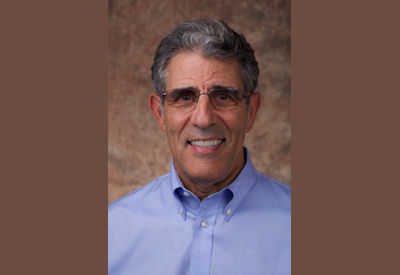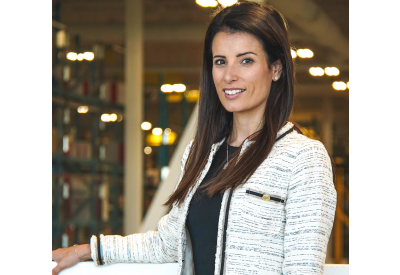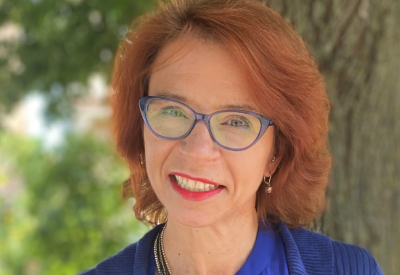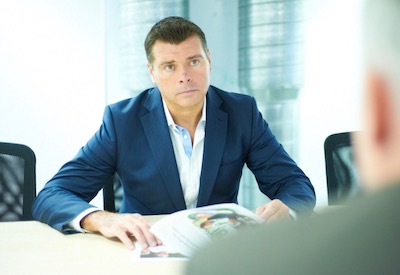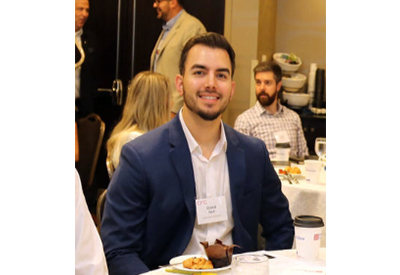David Nathaniel: A Talent for Still Being There at the Right Time — Part 2
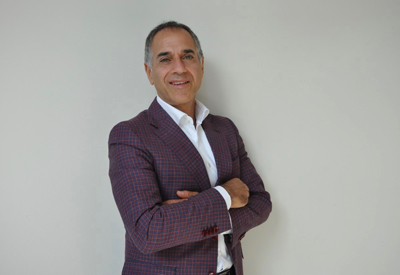
Feb 25, 2021
By Line Goyette
Six years ago in February 2015, I interviewed David Nathaniel and called the profile I wrote “A Talent for Being There at the Right Time.” We met again this past February, this time virtually (without a cup of his wonderful expresso coffee). What follows is a summary of our conversation — “A Talent for Still Being There at the Right Time — Part 2.”
My first question to David was, what has happened in those six years? “Everything,” he said, and he started to laugh. “Obviously, we faced a lot of disruption from LED technology. It has greatly impacted the lamp business. Most competitors from back then have exited the business today. At Standard, we were on a good path, introducing a lot of new products on the fixture side. We were growing a little bit every year. In 2018, I realized that Standard was quickly transitioning towards a fixture business and it did not make sense for me to keep Standard and Stanpro separate, to have two companies. So, we merged and announced it in early 2019.
“Since we announced the merger two years ago,” continued David, “from Stanpro/Standard’s point of view it has been challenging. Merging two large businesses, two different cultures, was very disruptive, a lot of pain along the way, but the good news is that two years later we are in good shape and accelerating and very well positioned for the future in terms of products, capabilities and efficiency.”
In this context, what effect has the pandemic had?
“On one hand the pandemic has had a big impact on our revenues, especially last April and May. It was a big shock. Having said that, there was a silver lining to the pandemic. Everything came to a standstill, salespeople could not go anywhere, so it gave us a pause and the team has been using it to our advantage. We put on an 8-week university with everyday training for our salespeople, and that was important because we had people from both companies, Standard and Stanpro, still learning about the combined product line. Before the pandemic we had already begun a reorientation initiative because the cultures in the two original companies were different. We have developed an updated vision and are building a strong culture for the business with strong core values. This is very healthy, and we had very good buy-in. In this time of crisis people stepped up to the plate and focussed. In this sense the pandemic was helpful.
“We would be in a different place without the pandemic. We were able to integrate more quickly and more successfully. And for the pandemic itself, I think as an entrepreneur one wonders all the time what else could go wrong. This is a common trait among entrepreneurs. They are always thinking, they want to make sure they are ready for anything. If someone had told me there will be a pandemic, the economy would shut down, etc., I would have said it’s impossible.
“For many people, it was time to show our resilience. We learned to manage in the midst of a sequence of crises. Of course, in the first days we were not panicking, but still, we didn’t know what direction to take. Then you start to talk to people and figure things out.
“I’m very proud of our team. It wasn’t easy for anyone. During a temporary layoff, we communicated with everyone. We were in a new situation, so my philosophy was, ‘Prepare for the worst and hope for the best.’ After 6 to 8 weeks, we returned to a 90% normal situation and were able to bring most employees back.
“Fortunately, in all of this, we were able to adapt. We had the technology to deal with the situation, such as teleworking. We’re doing everything we were doing before, but remotely. We now have more time for our families, and for leading a more simple life. So we definitely have to say that there are some benefits coming out of this crisis.”
We are now referring to you as the head of Ascot Capital Group. Merging Standard and Stanpro was not enough?
“Starting around 2005, I had aspirations to build a portfolio of businesses in the lighting and electrical industry. At the time I was more focused on Standard, building its capabilities and value to distributors. Then in 2008 LEDs started to lead the show. By 2020 the lamp business, which had represented 100% of Standard’s business in 2010, had declined by 90%.
“By 2009, I had recognized the disruptive threat that LEDs posed to our business. This fuelled my aspirations to build the group and diversify our business from lamps and ballasts. It was time to become a business centred on fixtures.
“Around 2016, I became more active in seeking out assets. Under the umbrella of Ascot Capital Group, we made three acquisitions in three years: LumenTruss, architectural lighting and very creative people, the Canadian operations of Beghelli, and then in 2020 we acquired a significant part in Gabriel Scott’s decorative lighting business. Their production studio is in Montreal and they have showrooms in New York and London.”
David Nathaniel is now responsible for the overall operation of the Ascot Capital Group, a privately held holding company based in Montreal. Company assets include Stanpro/Standard, AimLite, LumenTruss, Beghelli, and Gabriel Scott.
“We’ve kept all these acquisitions as separate businesses,” he explained. “It’s a very interesting grouping.”
Ascot Capital Group — an ecosystem
“We now have our own internal ecosystem. All the business leaders in our group support and help each other. Ascot is providing most of the financial, HR and IT support. The individual businesses are responsible for the rest. Each business conducts a monthly review, individually then collectively. They inform, and share ideas and suggestions at all levels: transport, production, sourcing, etc.”
David makes no secret of his enthusiasm for this model. “It’s really fantastic what this is bringing to the businesses. I feel very motivated because we have a very good system.
“As CEO of Ascot Capital Group, I’m not directly involved in operating any of the businesses, so I can go exercise and spend more time with my family. I have a better work/life balance, I love strategizing. I know operations well, but as the years went on I’ve enjoyed the strategic side more.
“We remain very active in studying different opportunities. The market is very fragmented, and I think Ascot Capital Group offers a great opportunity for companies looking for a way to gain more strength and adapt to changes in the business environment. This may be an opportunity for owners to exit the market completely or become a part of the Ascot Capital Group, where they can continue to be active in running their business and still maintain an equity position. Gabriel Scott and LumenTruss are successful examples of this approach.”
Inspirations
As I wrote at the beginning, David Nathaniel is known for his flair and talent for grasping the situation. As a real estate agent when interest rates were hovering around 22%, he turned to the family business and diversified it. He jumped into LED technology, but when it began to change the entire lighting industry, including lamps, fixtures and ballasts, he adopted another business model, merging the original two companies — one making fixtures and one making lamps — making three new acquisitions, and setting up his ecosystem of collaboration and exchange.
His inspiration in recent years: “The flywheel effect is a concept developed in the book Good to Great, by Jim Collins. ‘No matter how dramatic the end result, good-to-great transformations never happen in one fell swoop. In building a great company or social sector enterprise, there is no single defining action, no grand program, no one killer innovation, no solitary lucky break, no miracle moment. Rather, the process resembles relentlessly pushing a giant, heavy flywheel, turn upon turn, building momentum until a point of breakthrough, and beyond.’*”
Line Goyette is Managing Editor of Kerrwil Publications’ Electrical Group.
* Jim Collins; www.jimcollins.com/concepts/the-flywheel.html

